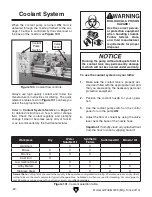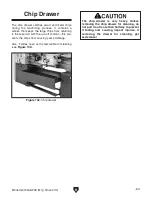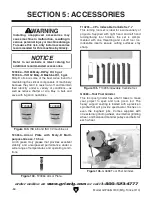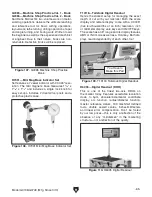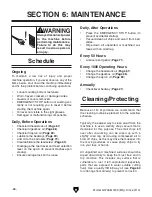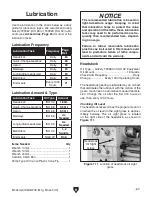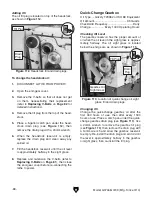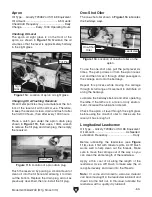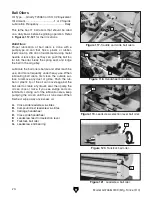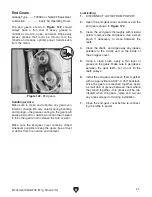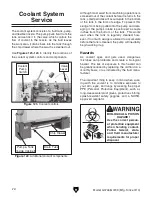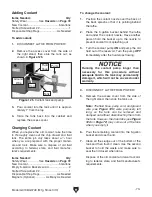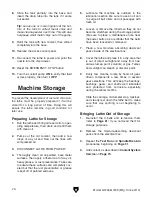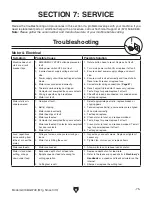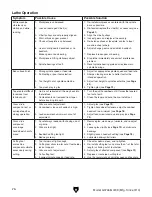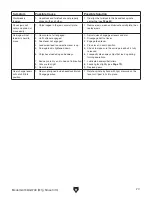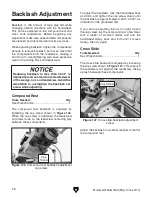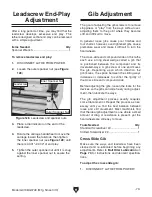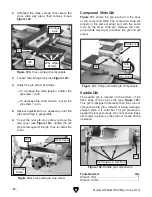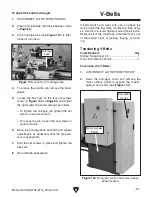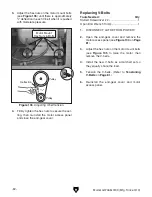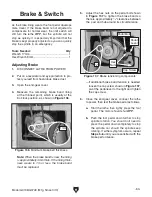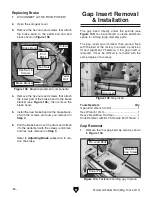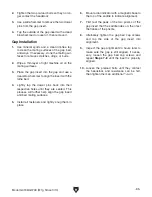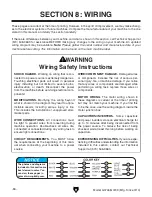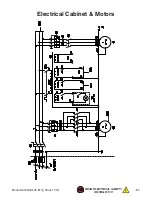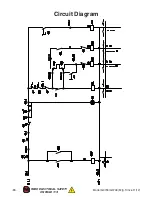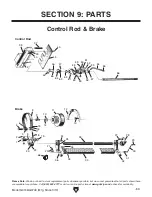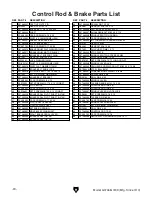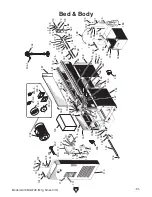
-76-
Model G0746/G0749 (Mfg. Since 3/13)
Lathe Operation
Symptom
possible cause
possible Solution
Entire machine
vibrates upon
startup and while
running.
1. Workpiece is unbalanced.
2. loose or damaged V-belt(s).
3. V-belt pulleys are not properly aligned.
4. Worn or broken gear present.
5. Chuck or faceplate is unbalanced.
6. gears not aligned in headstock or no
backlash.
7. Broken gear or bad bearing.
8. Workpiece is hitting stationary object.
9. spindle bearings at fault.
1. re-install workpiece as centered with the spindle
bore as possible.
2. re-tension/replace the V-belt(s) as necessary (see
page 81).
3. align the V-belt pulleys.
4. inspect gears, and replace if necessary.
5. re-balance chuck or faceplate; contact a local
machine shop for help.
6. adjust change gears and establish backlash.
7. replace broken gear or bearing.
8. stop lathe immediately and correct interference
problem.
9. reset spindle bearing preload or replace worn
spindle bearings.
Bad surface finish.
1. Wrong spindle speed or feed rate.
2. dull tooling or poor tool selection.
3. tool height not at spindle centerline.
4. too much play in gibs.
1. adjust for appropriate spindle speed and feed rate.
2. sharpen tooling or select a better tool for the
intended operation.
3. adjust tool height to spindle centerline (see
page
49).
4. tighten gibs (see
page 79).
tapered tool difficult
to remove from
tailstock quill.
1. Quill is not retracted all the way back into
the tailstock.
2. Contaminants not removed from taper
before inserting into quill.
1. turn the quill handwheel until it forces the tapered
tool out of quill.
2. Clean the taper and bore, then re-install tool.
Cross slide,
compound rest, or
carriage feed has
sloppy operation.
1. gibs are out of adjustment.
2. handwheel is loose or backlash is high.
3. leadscrew mechanism worn or out of
adjustment.
1. adjust gibs (see
page 79).
2. tighten handwheel fasteners, adjust handwheel
backlash to a minimum (see
page 78).
3. adjust leadscrew to remove end play (see
page
79).
Cross slide,
compound,
or carriage
handwheels hard to
move.
1. dovetail ways loaded with shavings, dust,
or grime.
2. gibs are too tight.
3. Backlash setting too tight.
4. Bedways are dry.
1. remove gibs, clean ways, lubricate, and re-adjust
gibs.
2. loosen gibs slightly (see
page 79), and lubricate
bedways.
3. slightly loosen backlash setting (see
page 78).
4. lubricate bedways/ball oilers.
Cutting tool
or machine
components vibrate
excessively during
cutting.
1. tool holder not tight enough.
2. Cutting tool sticks too far out of tool holder;
lack of support.
3. gibs are out of adjustment.
4. dull cutting tool.
5. incorrect spindle speed or feed rate.
1. Check for debris, clean, and re-tighten.
2. re-install cutting tool so no more than
1
⁄
3
of the total
length is sticking out of tool holder.
3. adjust gibs at affected component (see
page 79).
4. replace or resharpen cutting tool.
5. Use the recommended spindle speed and feed rate.

